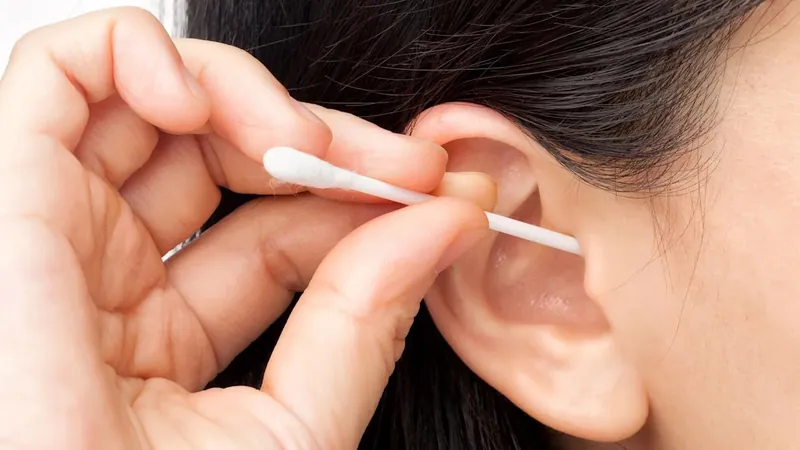
Unlocking the Secrets of Ear Wax: A Surprising New Tool for Detecting Parkinson's Disease!
2025-06-26
Author: Wei
Did you know that ear wax could be a game changer in the early detection of Parkinson’s disease? That’s right! Groundbreaking research suggests that the unique odor of ear wax might provide crucial insights into this progressive neurological disorder.
Traditionally, Parkinson’s disease (PD) is diagnosed only after patients start showing telltale signs like tremors, stiffness, and sluggish movements. However, a study published in the journal *Analytical Chemistry* reveals that the volatile organic compounds (VOCs) in ear wax could be an early indicator of the disease.
What’s behind this potential breakthrough? Researchers found that the sebum—oily secretions produced in our ear canals—of individuals with Parkinson's has a distinctive smell attributed to factors like systemic inflammation and neurodegeneration.
Dr. Joohi Jimenez-Shahed from Mount Sinai’s Icahn School of Medicine highlights a key finding: patients with Parkinson's tend to produce more sebum, which can be chemically analyzed. In this study, scientists examined ear wax samples from 209 participants, including 108 diagnosed with Parkinson's.
The results were astonishing. The researchers identified four specific VOCs—ethylbenzene, 4-ethyltoluene, pentanal, and 2-pentadecyl-1,3-dioxolane—that were significantly different in those with the disease. These compounds might serve as potential biomarkers for early diagnosis.
But there’s more! The researchers utilized an artificial intelligence olfactory (AIO) system to analyze these wax samples. The AIO technology, designed to mimic the human sense of smell, achieved a staggering 94% accuracy in distinguishing between samples from individuals with and without Parkinson’s.
This promising technology could transform the landscape of Parkinson's diagnosis, offering a cost-effective and straightforward screening tool, especially crucial since existing tests can be both expensive and subjective.
While this study marks a significant step towards early detection, it was conducted in a single clinic with a relatively small sample size. The author, Hao Dong, emphasizes the need for further research across diverse populations and stages of the disease.
Experts like Dr. Jimenez-Shahed envision a future where this simple ear wax test could replace more invasive diagnostic methods, making it easier than ever to detect Parkinson’s at an earlier stage. However, more evidence and larger studies are needed to fully validate the findings.
If you believe you may be at risk of Parkinson’s, it’s crucial to consult a neurologist or movement disorder specialist. Early intervention could be key in managing the disease.
Stay tuned to see how this innovative research could potentially revolutionize the way we approach Parkinson's disease!

 Brasil (PT)
Brasil (PT)
 Canada (EN)
Canada (EN)
 Chile (ES)
Chile (ES)
 Česko (CS)
Česko (CS)
 대한민국 (KO)
대한민국 (KO)
 España (ES)
España (ES)
 France (FR)
France (FR)
 Hong Kong (EN)
Hong Kong (EN)
 Italia (IT)
Italia (IT)
 日本 (JA)
日本 (JA)
 Magyarország (HU)
Magyarország (HU)
 Norge (NO)
Norge (NO)
 Polska (PL)
Polska (PL)
 Schweiz (DE)
Schweiz (DE)
 Singapore (EN)
Singapore (EN)
 Sverige (SV)
Sverige (SV)
 Suomi (FI)
Suomi (FI)
 Türkiye (TR)
Türkiye (TR)
 الإمارات العربية المتحدة (AR)
الإمارات العربية المتحدة (AR)